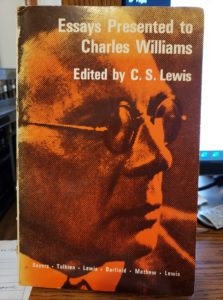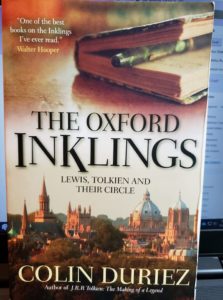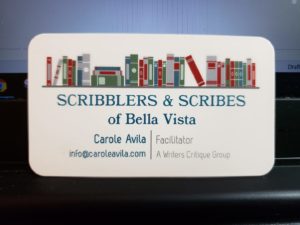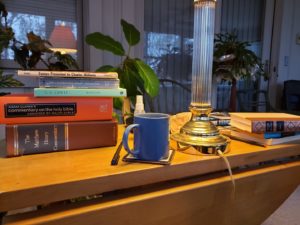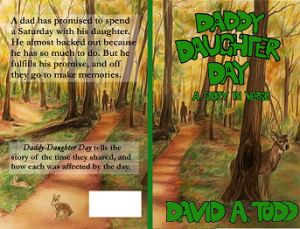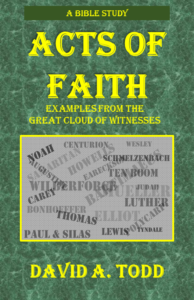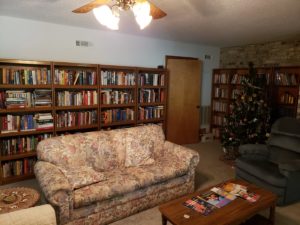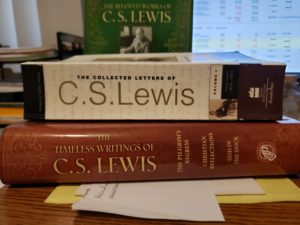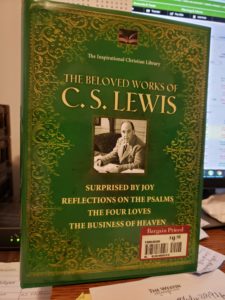I hope there will be some relics of us left when we have settled that question of souteraines.

As my wife and are in the process of de-cluttering, we find a lot of things I can only describe as footprints: printed matter, souvenirs, old things we used to use but don’t any more. We are weeding through these. So far I’ve listed a number of things on Facebook Marketplace and some have sold. Not many, but some. And the amounts earned thereby are starting to add up.
I’m determined not to leave the mess for our children that our parents did for us. Two houses to clean out, plus all my mother-in-law’s stuff stuffed into our basement storeroom when she left her house for an apartment and more coming with each of her next moves. And this is after having multiple estate sales and yard sales in the past.

My brother and I divided the tools and hardware from Dad’s basement. I took my share and stuffed them in our garage at our last house and faithfully moved them to our current, larger house and found space for them in the garage. A few—very few—I used. Most sat in cardboard boxes and tool boxes for the last 23 years, as they had at Dad’s for three or four decades before that. Some of those are gone. Some others will be picked up in 42 minutes [I write this on Sunday afternoon.]
When this process is over, a process that will take several years, I don’t know what we’ll have left. At some point we will have to consider our own stuff and decide what to do with it. But for now it’s enough to be dealing with our parent’s stuff. Our son is visiting us now. Before he came I told him to not expect much progress. I said what we had done so far was like cutting a millimeter off a 2-lbs. chunk of cheddar cheese. But progress is progress, even if it’s by millimeters instead of yards.
All of which is making me think of footprints, the footprints we leave in this world. Of course, as a genealogist, I’m thrilled when I find a footprint of an ancestor. It helps me to know a little about their life. The fact that so-and-so took someone to court in 1675 and won matters. Yet, I’m kind of glad I’m not looking at five pages of ancient court documents and trying to decide: “Do I keep this or not?” Footprints are good; a trampled wheat field is not. Hopefully the footprints that now adorn our house will, at such time as we leave this world, be just enough to be pleasing to our heirs, not overwhelming as we are now.
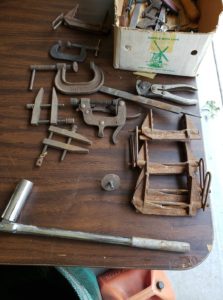
The quote that starts this post I found in a letter C.S. Lewis wrote to his good friend Arthur Greaves on 10 November 1941. I’m slowly reading through Lewis’ letters. Volume 1 is 1024 pages of 10 point font. I assume Volumes 2 (which I also have) and 3 (which I do not have) are about the same. By “relics” I believe Lewis means the same as “footprints”. He hoped that he would make an impact on the world and that those who came after him would know who he was.
The word “souterrains” was a new one on me. Wikipedia defines it thusly:
Souterrain is a name given by archaeologists to a type of underground structure associated mainly with the European Atlantic Iron Age. These structures appear to have been brought northwards from Gaul during the late Iron Age. Regional names include earth houses, fogous and Pictish houses.
So it’s an archeological relic—a footprint of people long gone, something that tells us a little about how they lived. Lewis is saying that, just as these souterrains survived for a couple of millennia, so would his influence survive. He wrote that as a 16-year-old school boy.
At the moment, I think the biggest legacy I could leave my kids is to not leave a mess behind for them to have to deal with. Oh, there will be a few things. We don’t leave earth with absolutely nothing in our possession just prior. But I know it will be better than the three messes we received.
